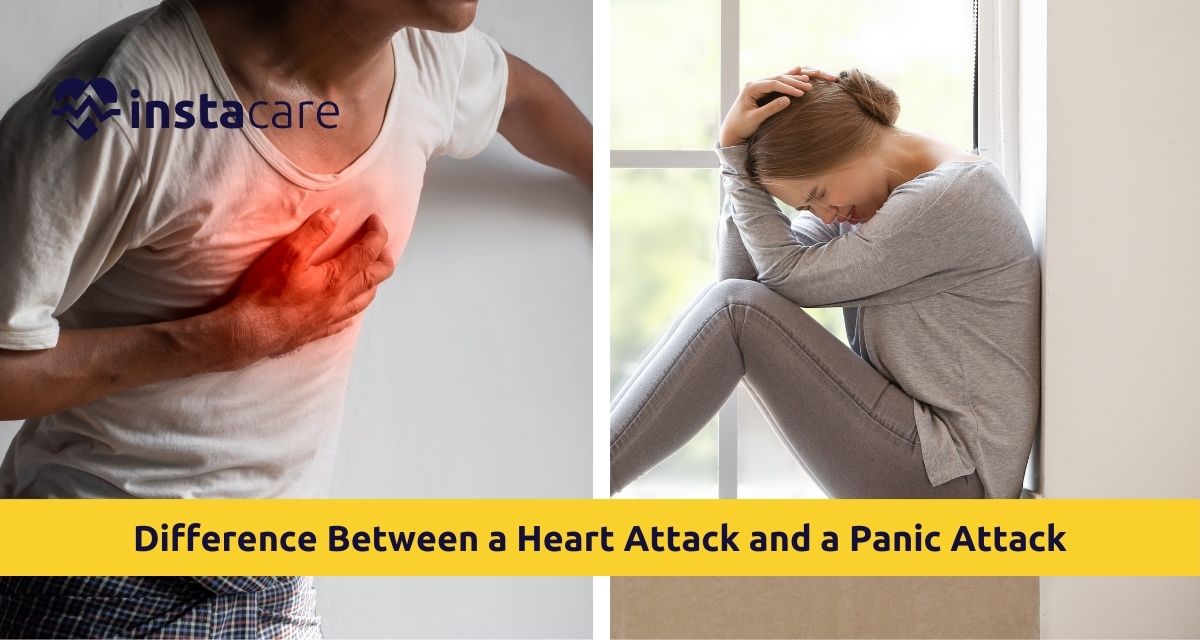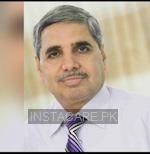The common man realizes the need to know whether it is a heart problem or just a panic problem. Both these conditions involve somewhat the same symptoms; the symptoms that the patient develops are chest pain and have shortness of breath. Thus, this situation may create confusion and may end up with misdiagnosis or inapt reaction.
Thus, the article would describe the
understanding of the basis behind such differences between two diverse
conditions, their causes, symptoms, response to each, and above all, the
importance of recognizing signs to come forward with suitable care.
What is a Heart Attack?
A heart attack, known medically as a myocardial infarction,
is a condition that arises when the blood supply to the heart is cut off by a blood clot or plaque, with subsequent damage or death to the cardiac muscles.
Causes of Heart Attacks
- Coronary Artery Disease
- Risk Factors: Several factors may lead to an increased
chance of having a heart attack, namely:
- High blood pressure
- High cholesterol levels
- Smoking
- Diabetes
- Obesity
- Lead a sedentary lifestyle
- Family history of heart disease
- Old age risk develops with increasing years
Symptoms of a Heart Attack
Very common complaints are
- Shortness of Breath, this can be associated with or without
chest pain.
- Cold sweats
- Dizziness
- Nausea
- Even a feeling of passing away
Action within Minutes in Case of Heart Attack
- In case of suspicion of a heart attack, you should act
immediately
- Emergency Number Contact number for emergency
- Crunching Aspirin in their mouth: If not allergic, a bitten
aspirin can help loosen blood flow into their bodies.
- Keep the Person Calm: Counsel them to sit down and wait for
medical help while calm.
- CPR: If the patient becomes unconscious and he has no
breathing, try to conduct CPR until other physicians arrive.
Understanding Panic Attacks
What is a Panic Attack?
This is an acute onset attack of severe fear or anxiety that
arises from such intense physiological responses that there does not seem to be
an actual cause. For example, an attack victim will feel as though they are
losing control, are having a heart attack, or are even dying. The specific set
time for panic attacks is unfixable, and at times, they arise due to various inducing
agents.
Causes of Panic Attacks
Panic attacks are caused by several causes, and some of which include;
- Genetic predisposition: The disorder can run in families;
those with family members who have had anxiety disorders or even panic attacks
have a higher vulnerability.
- Stressors: Sudden major life stressors, such as losing loved
one, having problems in their relationships and losing their job trigger
anxiety attacks.
Symptoms of Panic Attacks
Panic attacks most often develop to assume many symptoms, including
- This is one of the most often missed diagnoses, people think
that they are having a heart attack and the heart races in the chest due to the
fight or flight response.
- Such chest pain, although painful, is usually not due to
anything more interesting than damage to the heart.
- People are convinced that they are not breathing or, worse,
that they are choking.
- Dizziness or Lightheadedness: They experience the feeling of
passing out and unsteadiness.
- Sweating: They tend to sweat heavily with chills or hot
flush.
- Nausea: They may experience abdominal pain or nausea
- Sense of Disingenuity: It occurs with a feeling of unreality
or feeling of uncontrollable disengagement from oneself-according to some-at
the time of an attack.
- Fear of Losing Control: Most people fear that they are
losing control or "going crazy"-that they are out of control or
"going crazy"-during an attack.
Response to Panic Attack
If the victim is having an attack, the following
interventions can be done:
- Calming him down: Reassure him that everything's all right
and the attack will pass.
- Deep Breathing: You should repeatedly remind them to
continue to focus on the need to take deep, slow breaths, which eases
hyperventilation.
- Orient them: Orient him to the environment or make him count
things around him to distract him from panicking.
- Avoid Triggers: In panic attacks, if possible, avoid places
or people who are bound to trigger panic attacks till that person gets a better
hold of the situation.
Key Differences Between Heart Attacks And Panic Attacks
1. Physical Symptoms
- Heart Attack: It often adopts the form of physical symptoms, indicating a serious medical emergency; they include chest pains shooting into
the arms, back, neck, jaw, or stomach, cold sweats, and dizziness.
- Panic Attack: This is a disorder with a paroxysm of chest
pain and tachycardia but its physiology is essentially psychosomatic anxiety
and fear rather than a physiologic occlusion of the heart.
2. Time Course and Onset
- Myocardial Infarction: The symptoms begin slowly over minutes
or more. They often come without warning but frequently do not begin with
warning symptoms.
- Panic Attack: Symptoms usually peak within 10 minutes but
may last as short as a few minutes or as long as half an hour. They come
without warning or in response to obvious triggers.
3. Underlying Causes
- Heart Attack: Primarily caused by physical factors such as
blockage of arteries, or disease of the heart. The underlying risk factors
include lifestyle factors and hereditary conditions.
- Panic Attack: More connected to psycho factors, such as
stress and other anxiety disorders and environmental triggers. More connected
with emotional health than with medical health.
4. Methods of Treatment
- Myocardial Infarction: needs immediate medical care and
might require medicines, and surgery, among many treatments to get the blood
supply reinstated to the heart again.
- Panic Attack: Usually responds well to therapy, especially
CBT and anti-anxiety medications. Sometimes lifestyle modification in the form
of techniques for stress management can help.
Conclusion
The understanding of the differences between a heart attack and a panic attack is important if lives are to be saved because the treatment will then be given as soon as possible and correctly. Although both may be results of terrifying events, understanding the causes and treatment options will help the patients manage their health effectively. Therefore, if an individual suffers or begins experiencing recurring attacks or heart attack symptoms, he or she must consult a physician. Knowing is half the battle, and preparation is most of the fight- this makes all the difference that proper care is provided at the right time.
Lifestyle Changes for Heart Health and Anxiety Management
- Healthy diet
- Regular Exercise
- Stress Management Techniques
- Proper Sleep
Please book an appointment with the Best Cardiologist in Lahore, Karachi, Islamabad, and all major cities of Pakistan through InstaCare, or call our helpline at 03171777509 to find a verified doctor for your disease.










